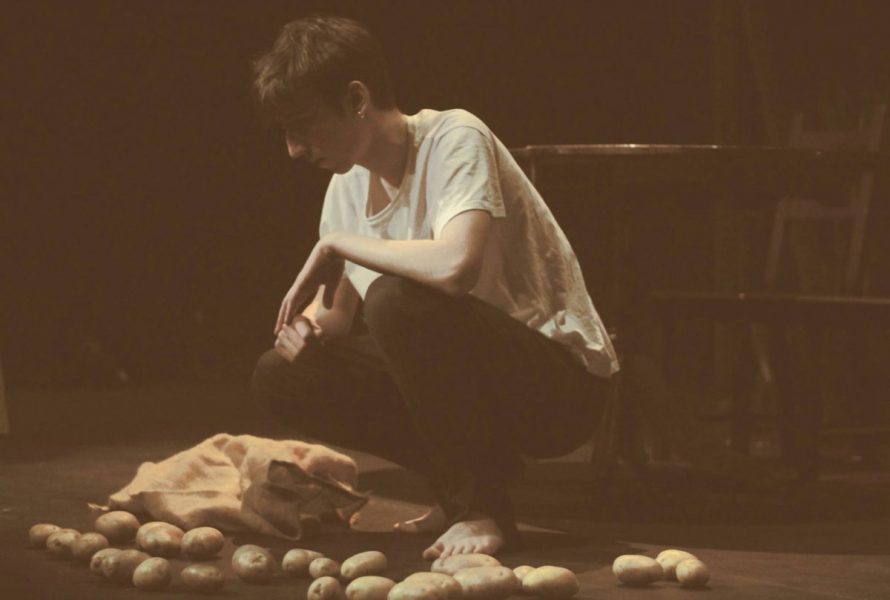It has been sixteen years since Zinnie Harris’ Further Than the Furthest Thing first debuted at the Traverse Theatre, a fraught meditation on what happens when a remote island community is suddenly confronted with modernity. Based on true events from the island Tristan da Cunha, the play tells the story of the islanders who were evacuated and displaced after a volcanic eruption in 1961. It touches on capitalism and industrialisation, but also on the disturbing lengths that the islanders will go to to preserve their untouched way of life. The play is now enjoying a revival at Bedlam Theatre, in a production developed by the Edinburgh University Theatre Company.
This particular production is ambitious, and that is ultimately what lets it down. There is a lot of to-ing and fro-ing – actors coming onstage for short bursts of action before filing off again, a cumbersome dining room table that must be dragged on and offstage for every other scene change. These gaps in the story mean that the performance does not flow as well as it should. It is difficult to be fully immersed when we are regularly interrupted by very visible and drawn out set changes. Perhaps the furniture is there to give the play some realism, but that is not really necessary when so much onstage is mimed or abstract (the simulation of Bill swimming in the sea using projections on a translucent screen is a nice touch). The production would probably benefit from being stripped back and finding a way to keep actors and props onstage, so that we can spend more time focussing on the tension between the characters.
The use of music and physical theatre to both link and separate the secluded island and modern Britain is well-done, the cello enhancing the organic way of life in the middle of the Atlantic in comparison with the electronic bass that pervades the UK factory. The trouble with the cello however comes when it is used at the same time as some key dialogue. Anna Swinton’s harrowing pleas to Oscar Gilbert are sadly drowned out by the accompanying music. There is a sense again that there is too much going on onstage.
The play gets off to a slow start because of these setbacks, but a powerful exchange between Gilbert and Rufus Love intervenes and improves the first act dramatically. Gilbert is equal parts a sympathetic opponent to capitalism and a stubborn individual stuck in the past. Love is convincingly wide-eyed and innocent, whilst also justifyingly frustrated by his contrary uncle. Their argument is fantastically done, with Gilbert stalking around the stage and switching his tone and pace at all the right moments. There are many moments like this, where impassioned exchanges between the actors give the play’s many complexities the airing that they deserve.
